- Premium Content It takes our newsroom weeks - if not months - to investigate and produce stories for our premium content. You can’t find them anywhere else.
India’s spacetech startups take off, but will they reach orbit?
The Indian government’s recently announced US$118 million venture capital fund to boost the nation’s space sector over the next five years might seem like small potatoes compared to the estimated US$630 billion value of the global spacetech industry.
However, the launch – India’s first – also highlights the excitement around this niche industry in the country.
Previously, India’s space sector was synonymous with only the Indian Space Research Organization (ISRO). But the sector has seen a surge in private activity and innovation since 2020.
Image credit: Timmy Loen
Spacetech startups in India are not just emerging rapidly, they are also gaining global traction, with companies like Pixxel even securing a contract with NASA. The country is also on the cusp of launching the first privately built version of the Polar Satellite Launch Vehicle, which was previously only made by the ISRO.
This expansion of the Indian spacetech ecosystem has attracted significant attention from private investors, with startups in the sector securing over US$300 million in funding to date, data from Tracxn shows.
The government’s VC initiative aims to fuel this momentum to elevate India’s position in the global space industry. But what sparked this meteoric rise in the country’s space sector, and is it enough rocket fuel to go the distance?
The SpaceX factor
The success of Elon Musk’s SpaceX on the global stage was a major catalyst for India’s decision to open its space sector to private players, local spacetech startup founders tell Tech in Asia.
SpaceX was the first private entity to launch a spacecraft into Earth’s orbit and bring it back. This “showed that you could actually build a successful business,” says Pixxel co-founder Awais Ahmed.
Fireflies 1, one of Pixxel’s satellites / Photo credit: Pixxel
According to Anil Kumar Bhatt, director general of the Indian Space Association (ISpA), the country already has the foundations – local talent and ISRO’s legacy – to drive growth into its space sector in the same way as IT and pharmaceuticals.
That said, India’s space industry accounted for only 2% of the US$630 billion global space economy in 2023.
By 2020, the government had recognized that India couldn’t afford to fall behind in the global spacetech race. In response, it launched the ISpA in 2021, which opened the Indian space industry to private companies and startups.
Since then, 63 spacetech startups have been founded in the country, and many of them have the “SpaceX touch,” with the Musk-owned company’s rockets playing the role of a carrier to India’s privately built satellites. Pixxel, for example, is building six satellites in Bengaluru, which will be launched aboard a SpaceX rocket next year.
The satellites, called Fireflies, will deliver data across various applications, from early detection of crop diseases and pinpointing water stress to real-time deforestation monitoring and tracking ocean pollution.
Another startup, Digantara, will be launching a couple of satellites next year on the SpaceX Falcon 9 rocket, its founder and CEO Anirudh Sharma tells Tech in Asia. It is one of the first commercial systems in the world that is designed to track objects in space, including other satellites and space debris.
The founding team of GalaxEye / Photo credit GalaxEye
GalaxEye, which recently closed a US$10 million funding round, is also gearing up to launch its Drishti satellite on a SpaceX rocket by the second half of next year, according to co-founder Pranit Mehta.
Token investment?
While SpaceX has been a success, the spacetech industry as a whole faces a common challenge: it is a capital-intensive field that demands deep expertise from its founders.
To attract customers, a spacetech firm must first make large investments to launch satellites or spacecraft, which requires not only substantial funding but also time for research and development. Raising this kind of capital hasn’t been easy, though it’s starting to become more accessible.
“It’s much easier now than it was in 2019 when we started,” says Ahmed of Pixxel, which has raised US$71 million so far.
According to him, it is not difficult for spacetech startups in India to raise a pre-seed or seed round, but after that, it all comes down to execution. For larger rounds, success hinges on strong performance, as funding sources become more limited.
Most of the large Indian funds have “at least one token space investment” in the country, says Ahmed. They do so to say that they are invested in space, but “once they invest, they generally tend to stay away,” he points out.
It takes a lot of capital for something to come out of a spacetech investment that is “monetizable from a business standpoint,” says the managing partner of an India-based VC firm. The person adds that their fund “doesn’t have that kind of capital to invest in these companies.”
Data from Tracxn reveals that funding in India’s spacetech sector has dropped from a peak of US$127.7 million in 2023 to just US$32.6 million so far this year.
That said, there are VC firms such as Speciale Invest continuing to make bets in the sector. It has already made five investments in spacetech startups.
Given India’s deep expertise with the space industry at ISRO, “we have always felt that there is an opportunity for something like this to come out of the country,” says Vishesh Rajaram, managing partner at Speciale Invest.
And he’s looking for more investment opportunities, adding that the VC firm is in early-stage talks to back “a couple of ideas” in the sector.
Aside from their home country, Indian startups also have an opportunity to attract investments from the US, the biggest spacetech player in the world.
Geopolitical trends are in India’s favor. With tensions between the US and China simmering, it’s unlikely that US-based VC firms will invest in Chinese spacetech startups, as the sector is considered to be critical for national security.
With China a dominant force in Asia’s spacetech sector, India faces one less competitor when it comes to attracting US investment in this field.
“It is definitely an opportunity for Indian startups to capitalize on,” adds Sharma of Digantara.
US-based organizations such as the Space Exploration and Research Agency, which recently announced India as a partner country for its citizen astronaut mission, are also eyeing opportunities to tie up with Indian spacetech startups.
Watch this space for more
Although India’s private spacetech sector is just taking off, the future looks promising, with a potential value of US$44 billion by 2033.
While ISRO will continue to lead India’s most cutting-edge space initiatives such as sending humans to space, the private space industry will likely see two types of companies and growth paths, says Ahmed of Pixxel.
Pixxel co-founders Awais Ahmed (left) and Kshitij Khandelwal / Photo credit: Pixxel
The first will be Indian companies focused on serving local needs, particularly in areas critical to national security. Space is a strategic domain; just as warfare moved from land to sea, then to air, it is now extending into space. Hence, India will ensure communications for its defense and security needs through independent satellite capabilities rather than relying on other countries.
This approach is similar to the nuclear sector, where self-reliance is essential. According to Ahmed, the country will have “companies building assets within India, for India, to meet defense, security, and self-sufficiency requirements.”
See also: What the Russia-Ukraine crisis spells for spacetech in SEA
The second type will be firms building in India but competing on the global stage. For example, Pixxel is developing the world’s first hyperspectral satellite constellation, which is designed to beam down data in hundreds of wavelengths to detect problems that are invisible to today’s satellites.
GalaxEye’s Drishti satellite is also a first-of-its-kind spacecraft that will have multisensor configuration, wherein its sensor “will be able to capture images even during clouds, night time, and so on,” says co-founder Mehta. The startup has already filed a global patent for the product.
While India’s private spacetech sector has only launched, Rajaram of Speciale Invest believes that a few startups in the industry will soon find success, “which will definitely fuel more capital and expansion.”
Support quality journalism and content.
This is a Premium Content. Subscribe to read the full story.
Already a subscriber? Log in.
- Community Content This article was written by a TIA community member. Community pieces are curated and lightly edited by TIA editors compared to stories produced by our newsroom.
How Trump and Apple could ignite Indonesia’s industrial growth
Donald Trump’s reelection as president of the US and Indonesia’s ban on iPhone 16 sales are two events that may appear unrelated to one another. Together, however, they signal that Indonesia may be entering a period of unique opportunity for its domestic industries.
Trump’s push for trade protectionism, combined with the Indonesian government’s efforts to ensure global corporations provide value to the local economy, could position the country as an alternative to China and catalyze domestic industrial development.
Donald Trump on the campaign trail in 2024 / Photo credit: Jonah Elkowitz / Shutterstock
Guess who’s back
The broader global trade environment is evolving. With Trump set to return to the White House, there’s a strong chance he will intensify protectionist measures, especially against China.
During his previous term, Trump imposed tariffs on hundreds of billions of dollars worth of Chinese goods. He has promised to strengthen these policies, potentially creating new barriers to trade with China.
See also: Shein and Temu in crosshairs of Trump’s tariffs
Companies concerned about tariffs or the risk of further restrictions on Chinese imports may start looking for alternative manufacturing bases, and Southeast Asia appears an attractive candidate. Indonesia, in particular, is well-positioned to absorb some of this shifted demand, thanks to its large and relatively young workforce, rich natural resources, and improving infrastructure.
Beyond attracting investment, this shift could stimulate further innovation in Indonesian industries. As more companies invest in the country, it could see a spillover of tech, skills, and management practices that contribute to productivity gains across sectors.
Local firms would have the opportunity to observe and adopt best practices from international corporations, which would help them become more competitive. This would be a big step toward integrating the country into the global value chain.
A potential influx of foreign investment could also spark improvements in Indonesia’s infrastructure. This can help address one of the challenges that come with attracting global businesses: ensuring that transportation, communication, and energy systems are up to international standards.
Jakarta’s busy traffic / Photo credit: Shutterstock
The growth of domestic industries also aligns with the country’s aspirations to become an economic powerhouse in the region. As Indonesian companies become more competitive globally, they’ll likely be able to expand their reach and increase exports.
This could significantly contribute to the country’s gross domestic product and lead to more jobs, higher incomes, and an overall improvement in living standards. If managed effectively, manufacturing and tech industries in Indonesia could help reduce its reliance on natural resources and foster a more diversified and resilient economic base.
Not the apple of Indonesia’s eye
The Indonesian government has taken steps to ensure that global corporations like Apple meet certain prerequisites if they want to operate in the country. By banning the sales of iPhone 16, Indonesia has underscored the importance of its local content regulations, which require foreign companies to use domestic products or services in their production by a set percentage.
Apple committed to invest around US$110 million in the country. Local outlet Telegrafi reported that the iPhone 16 sales ban is partly because the company has fallen short of this obligation by about US$10 million.
See also: Indonesia’s govtech ambitions shadowed by concerns
Perhaps unsurprisingly, Apple is now considering building a factory worth US$10 million in Indonesia in a bid to lift the ban.
This investment isn’t just about cash; it’s also about physical infrastructure, skills, and knowledge sharing.
With the company being pushed to build facilities like manufacturing plants and R&D centers on Indonesian soil, we’re likely to see a transfer of skills and tech to the local workforce. That’s because employees would gain hands-on experience with the latest manufacturing and R&D techniques, which they can later apply across the tech sector and beyond.
Apple CEO Tim Cook during his 2024 visit in Indonesia / Photo credit: Tim Cook’s X page
By enforcing local content requirements, the Indonesian government is encouraging firms to play a meaningful role in national economic development. This could also encourage collaboration between domestic players and multinational companies.
If Apple decided to work with local manufacturers or logistics firms to fulfill its local content obligations, domestic industries could become key parts of the tech company’s supply chain – something that could prepare them for international contracts in the future.
Seize the moment
For Indonesia to fully capitalize on these opportunities, the country must provide training and upskilling options for workers. This will ensure that they can meet the demands of a rapidly evolving job market.
Encouraging more people to pursue careers in tech, engineering, and skilled trades will be crucial. By investing in education and vocational training programs, Indonesia can make sure that its workforce remains competitive and capable of taking on the advanced production and tech roles that open in multinational companies.
Having a mindset that values efficiency, quality, and forward-thinking can go a long way in achieving this feat, too, as workers with these values can help the country strengthen its position as a reliable and high-quality manufacturing and logistics hub.
Indonesia’s demands for meaningful local investment mean the country can fully capitalize on Trump’s China pressure – creating a unique opportunity to transform, not just relocate, supply chains.
The road ahead will need careful planning, investment in infrastructure, and a commitment to workforce development. If Indonesia seizes this moment, it has the potential to elevate its economy, improve the quality of life for its people, and achieve its goal of becoming a developed country.
Rexi Christopher is a venture partner at Init 6, an Indonesian VC firm that looks to back technical founders.
Support quality journalism and content.
This is a Premium Content. Subscribe to read the full story.
Already a subscriber? Log in.
Sign up for the Daily Newsletter, sent exclusively to our premium subscribers. We break down the big and messy topics of Asia’s tech and startup community. Get the newsletter in your inbox everyday with a premium subscription.
Hi readers,
When I began seeing US-based content creators that I follow sporting clothing by Love Bonito or adorning their homes with tables from Castlery, it became clear to me that Singapore startups were making their mark in that market.
Over the years, many other homegrown firms have expanded to the US – some in less obvious ways. Take for instance Truegenics, a direct-to-consumer firm selling health supplement brands. It grew to an 8-figure business by targeting customers through informercials. Most of its customers reside in the US.
IglooCompany, a maker of smart locks, set up its second headquarters in Austin, Texas, during the pandemic, as demand for its solution in the US grew. Today, the country represents over 50% of the company’s sales.
With the US making up a growing share of revenue for many Singapore businesses, any import tariffs that US President-elect Donald Trump has threatened to impose will bring about both direct and indirect costs.
Rejigging an entire supply chain is probably as hard as it sounds. While doable, it is likely a last resort for companies – even those that have the flexibility of sourcing new suppliers from other more cost-effective markets.
In the aftermath of the pandemic and global supply chain shocks, businesses have learned how to expect the worst. Hopefully they’re more well-equipped to deal with them, too.
— Melissa Goh, journalist at Tech in Asia
Top stories this week
Image credit: Timmy Loen
1️. SG startups’ love story with the US unfazed by tariff threats
Potential US import tariffs of up to 20% could unwind the “explosive” growth that firms are seeing in their largest market.
2. Grab’s financial health in 8 charts
In the third quarter, Grab logged an all time high of US$90 million in adjusted EBITDA, while revenue increased by 17%.
3. Indonesia’s rising proptech scene at risk as middle class shrinks
Firms like Lamudi and Rukita have raised funds and claimed profitability, but PropertyGuru notably exited the market in 2023.
4. Newly listed Swiggy’s path to profitability has no easy recipe
With Zomato’s deep pockets and clear lead across verticals, IPO-bound Swiggy faces a tough battle for market share.
5. No A+ here: Physics Wallah widens losses in FY2024
The Indian edtech firm is placing a big bet on offline centers, aiming to generate US$125 million in net revenue from them.
6. This startup wants cash to turn silkworms into vaccines
Loopworm, whose silkworm protein is used for animal feed, is now eyeing to develop protein for vaccines or beauty products.
7. Shein and Temu in crosshairs of Trump’s tariffs
These cross-border giants built empires on affordable prices. Trump’s tariffs could end their reign.
8. Indonesia to launch Temasek-style fund amid transparency concerns
With an asset target of almost US$1 trillion, Danantara could soon rank as the world’s fourth-largest sovereign wealth fund.
9. Sea Group’s financial health in 7 charts
These charts offer a snapshot of how Sea Group, the company behind Garena, Shopee, and SeaMoney, is faring
10. Apps vs. alliances: the SEA playbook of rivals Tencent and Ant
One has taken a download-first approach while the other is focusing on local partnerships.
Recommended reads
 It’s almost 2025. Are you ready for it?
It’s almost 2025. Are you ready for it? Alibaba’s financial health in 12 charts
Alibaba’s financial health in 12 charts Heavy lifters: the key players powering ecommerce in Indonesia
Heavy lifters: the key players powering ecommerce in Indonesia Weekly funding: Bridgit’s $164m deal takes top spot for Australia
Weekly funding: Bridgit’s $164m deal takes top spot for Australia Apps vs. alliances: the SEA playbook of rivals Tencent and Ant
Apps vs. alliances: the SEA playbook of rivals Tencent and Ant Indonesia to launch Temasek-style fund amid transparency concerns
Indonesia to launch Temasek-style fund amid transparency concerns Indonesia’s rising proptech scene at risk as middle class shrinks
Indonesia’s rising proptech scene at risk as middle class shrinks Sea Group’s financial health in 7 charts
Sea Group’s financial health in 7 charts Shein and Temu in crosshairs of Trump’s tariffs
Shein and Temu in crosshairs of Trump’s tariffs Grab’s financial health in 8 charts
Grab’s financial health in 8 charts
Edited by Eileen C. Ang
(And yes, we’re serious about ethics and transparency. More information here.)
Share, tag us, and land on our Wall of ❤️!
- Premium Content It takes our newsroom weeks - if not months - to investigate and produce stories for our premium content. You can’t find them anywhere else.
20 top angel investment networks in Asia
With the number of high net-worth individuals steadily increasing globally, many are looking to diversify their investments. As tech startups mature and gain reputability, interest from these angel investors has grown.
But individual investments can be risky, especially when one has little to no experience in the ever-changing startup space.
This is why angel investment networks have become a popular option. These syndicates bring together like-minded investors, increase access to deal flow, enable them to invest in a larger variety of startups, and mitigate risk through more thorough due diligence processes.
To keep the list fresh, we’ve only included data on deals from the past two years.
We do acknowledge that there are limitations to our dataset. If you see something that’s missing or incorrect, do reach out to us at research@techinasia.com and let us know.
Now, let’s dive in.
Editing by Lorenzo Kyle Subido
(And yes, we’re serious about ethics and transparency. More information here.)
Support quality journalism and content.
This is a Premium Content. Subscribe to read the full story.
Already a subscriber? Log in.
Sign up for the Daily Newsletter, sent exclusively to our premium subscribers. We break down the big and messy topics of Asia’s tech and startup community. Get the newsletter in your inbox everyday with a premium subscription.
Hello reader,
Have you already made plans for next year?
In a blink of an eye, 2024 is almost over. As with every year, 2025 presents exciting opportunities and scary challenges. But no matter what, time moves forward and so should we.
Better make it a sure step than a blind one, eh? One of the articles in this week’s Thoughtful Tidbits can give you some advice on how to get started.
Image credit: Timmy Loen
You can find all other important investment deals that happened in the last few days in our weekly funding news wrap-up.
Let’s dive into the biggest deals that recently took place.
The biggest deals by country
🇦🇺 Bridgit is an Australian startup that provides bridging loans, usually to individuals keen to buy a new home before their existing property gets sold. It has secured a US$164.2 million facility with global bank Citi as its funder.
🇨🇳 Zelos, an autonomous driving tech company from China, has locked up US$100 million in series B funding. Bai Fu Wealth Management and Blue Lake Capital led the funding round.
🇸🇬 Olea is a digital trade finance platform headquartered in Singapore. It has obtained US$100 million in warehouse financing from HSBC and Manulife.
🇸🇦 Saudi Arabian fintech company Lean Technologies offers a universal API that unlocks critical infrastructure in the Middle East and North Africa region. It has raised US$67.5 million in a series B round with Arbor Ventures, Bain Capital Ventures, Duquesne Family Office, and General Catalyst as the participating investors.
🇳🇿 Auror, a New Zealand-based firm that offers crime intelligence software, has raised over US$48.5 million in a series C round. Investors included Axon Enterprise, Folklore, and Global from Day One.
Here’s the complete list of this week’s funding chart: 78 deals worth over US$827 million.
M&A
🇮🇳 India-based VedVaani runs an app that leverages AI to provide astrology and spiritual advice. The firm has been acquired by AI-focused venture studio BrahmVeda Ventures for an undisclosed sum.
Startups that are raising funds
Fundraising is hard. To make things slightly easier, we’ve compiled this list of fundraising startups for our subscribers.
We send fundraising startups directly to investors’ inboxes. There’s no better time to list your startup, and you can do so here.
🇻🇳 This Vietnamese startup allows its clients to distribute financial products and get commissions from the transactions.
🇲🇾 This Malaysia-based company provides comprehensive vehicle history and auction reports for used cars imported from Japan, Malaysia, the UK, and the US.
🇹🇭 This Thai firm is developing a smart collar that transforms pet monitoring into an intuitive and data-driven experience.
You can find the full list of fundraising startups in Asia over here.
Behind the Glasswall
Image credit: Timmy Loen
Fundraising often involves reaching out to several contacts, many of whom founders might not have dealt with before.
To provide some transparency to this process, we created Glasswall, a platform for founders to give feedback and recommendations on investors. Check out the full list here.
- ✅︎ “Decision process has been quick. Not a surprise since the partners are also successful ex-founders who are knowledgeable.” – Read more
- ❌ “Very passive and disengaged on shareholders update calls.” – Read more
- ✅︎ “They not only challenged us to see our commitment to our vision and mission but also asked meaningful questions that we had not thought about. Their team was also very proactive and responsive in answering questions we had with them with regard to new terminologies and concepts that were not so clear to us at the time. While the due diligence took some time, I think it was fair and reasonable. 10/10 would not have changed a thing from the process we had gone through.” – Read more
Exclusive listicles
Lists of most active investors in the region
China | India | Indonesia | Japan | Singapore | Southeast Asia
List of top-funded startups in Asia
China | India | Indonesia | Israel | Japan | Hong Kong | Singapore | South Korea | Vietnam
Thoughtful Tidbits
1️⃣ Time to think about 2025
We’re well into November, which means companies big and small are likely in the middle of planning for next year. Doing so can be frustrating and complicated, though. Good thing, this First Round Review article provides some comprehensive tips and tricks.
2️⃣ Same same but different
You might be aware that the markets have risen since the US elections ended. The rising tide hasn’t lifted all boats equally, however. Tomasz Tunguz, general partner at Theory Ventures, dives deeper into these market movements in this article.
3️⃣ So, Trump won. What’s next?
This Masters of Scale episode endeavors to answer this question. More specifically, it takes a closer look at what the election results could mean for Silicon Valley, the economy in general, and more.
4️⃣ Friendly debate
In this article, tech giant Microsoft and VC firm Andreessen Horowitz discuss policy ideas to make sure that no AI startup gets left behind.
5️⃣ Politics and tech affect each other
That shouldn’t be news to anyone. Now that the geopolitical landscape looks murkier than ever, this Harvard Business Review article could be useful in making sense of what the future has in store for tech.
Recommended reads
 It’s almost 2025. Are you ready for it?
It’s almost 2025. Are you ready for it? Alibaba’s financial health in 12 charts
Alibaba’s financial health in 12 charts Heavy lifters: the key players powering ecommerce in Indonesia
Heavy lifters: the key players powering ecommerce in Indonesia Weekly funding: Bridgit’s $164m deal takes top spot for Australia
Weekly funding: Bridgit’s $164m deal takes top spot for Australia Apps vs. alliances: the SEA playbook of rivals Tencent and Ant
Apps vs. alliances: the SEA playbook of rivals Tencent and Ant Indonesia to launch Temasek-style fund amid transparency concerns
Indonesia to launch Temasek-style fund amid transparency concerns Indonesia’s rising proptech scene at risk as middle class shrinks
Indonesia’s rising proptech scene at risk as middle class shrinks Sea Group’s financial health in 7 charts
Sea Group’s financial health in 7 charts Shein and Temu in crosshairs of Trump’s tariffs
Shein and Temu in crosshairs of Trump’s tariffs Grab’s financial health in 8 charts
Grab’s financial health in 8 charts
Edited by Mina Deocareza
(And yes, we’re serious about ethics and transparency. More information here.)
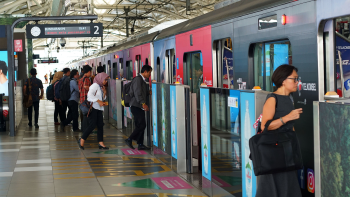

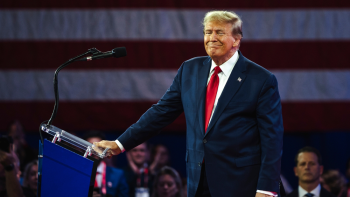






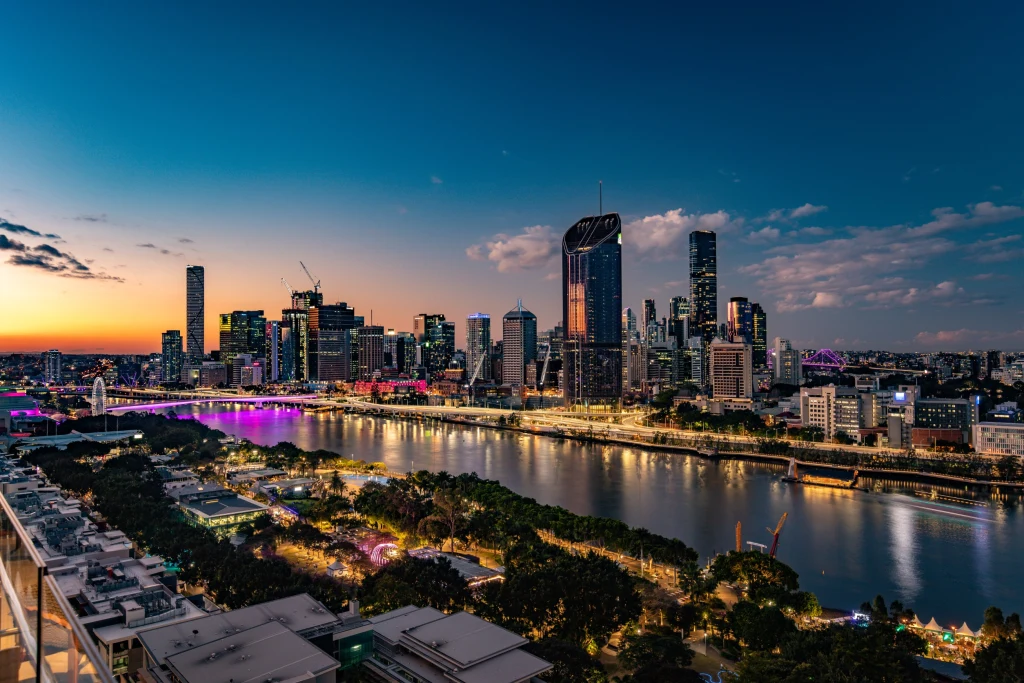

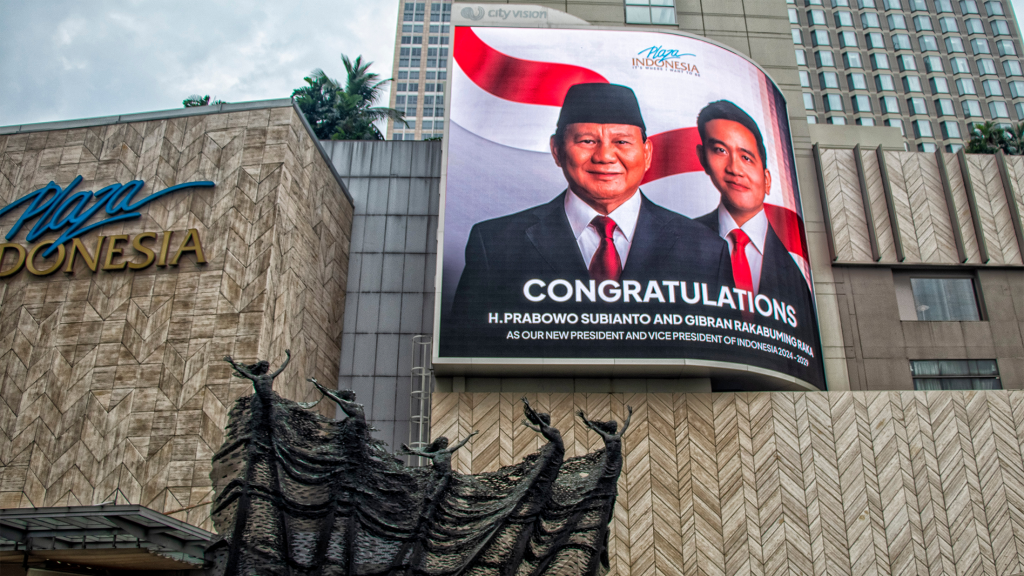


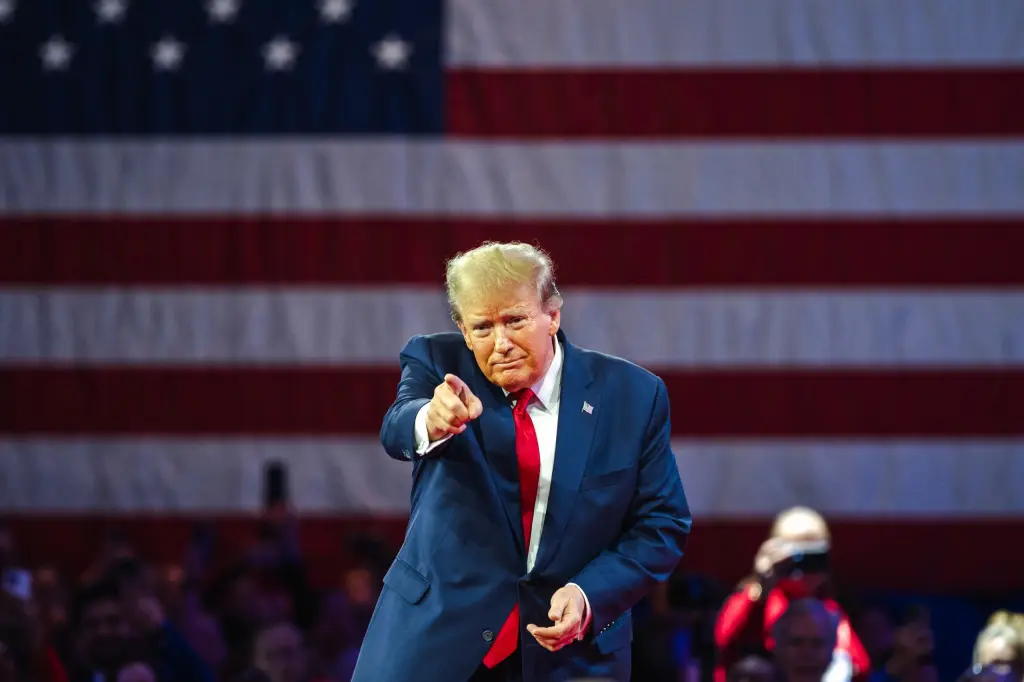

Be the first to comment!
Comment now